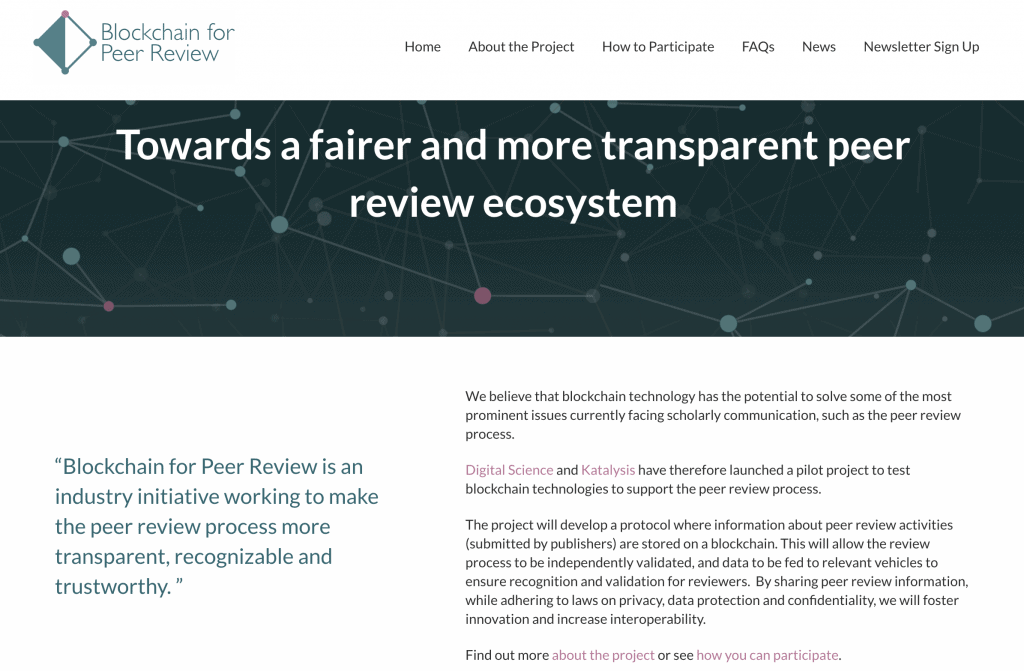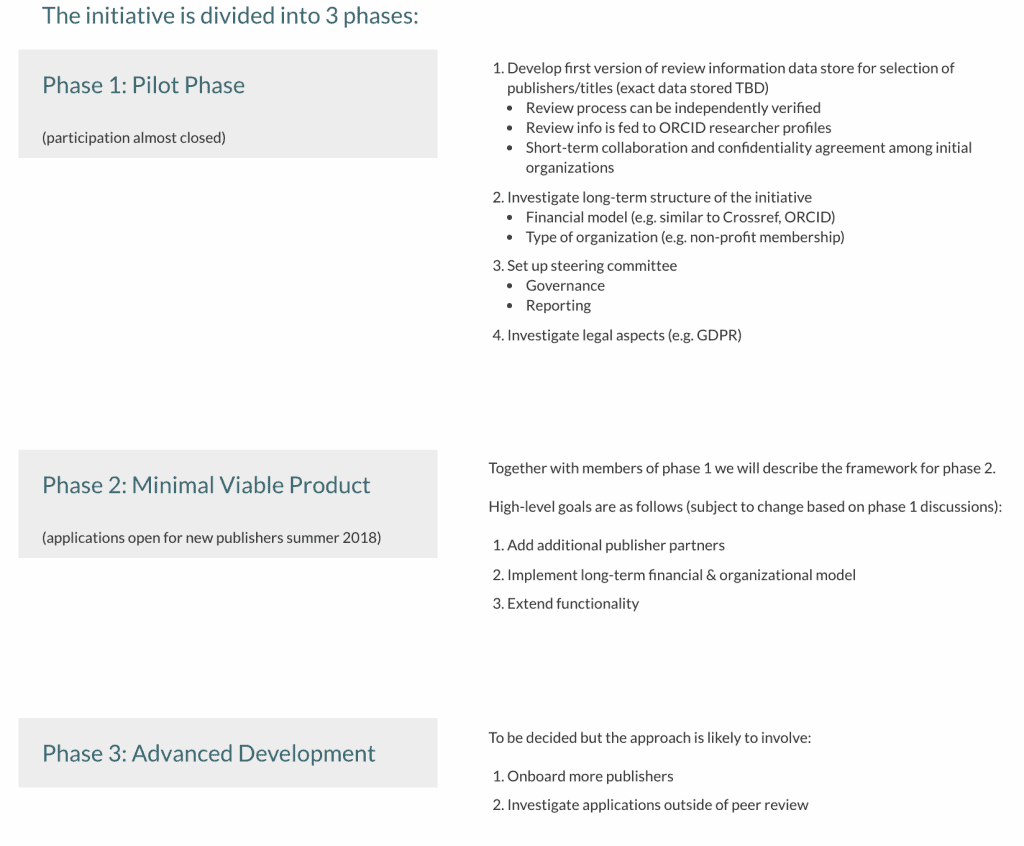- Profile
- Comments 0
- prev
- next
- Website
- Leave a comment
- prev
- next
In a nutshell
Digital Science, Springer Nature, Taylor & Francis, Cambridge University Press, ORCID, Katalysis and the Wellcome Trust as advisors joined forces in an industry-wide, not-for-profit initiative with the intent to solve the challenges around the peer review process. By building a shared, fully GDPR compliant infrastructure for sharing peer review information while fully respecting demands around confidentiality, privacy, as well as supporting single blind and double blind alongside open review models, the process can be made more transparent, recognizable, transportable and efficient. The initiative was launched in March 2018. Having successfully delivered and tested our PoC, we plan to launch in 2019 our first MVP op top of the infrastructure focused on validating and disclosing the review process through Crossmark.
Goals and intentions
We believe that most of the problems around the peer review process are caused by the fact that, due to the confidential nature of the process, peer review is traditionally siloed and a 'black box'. The lack of transparency can lead to fraud and manipulation, results in a lack of recognition for reviewers, and hinders the exchange of review history between journals. Moreover, the lack of coordination between journals and publishers, especially on shared reviewers, leads to many inefficiencies.
The project's aim is to build a shared infrastructure on a not-for-profit basis that will allow all participants in he ecosystem (publishers, institutions, funders, and of course editors, authors and reviewers themselves) to exchange information around the process, while respecting the confidential nature of the process.



Add a comment